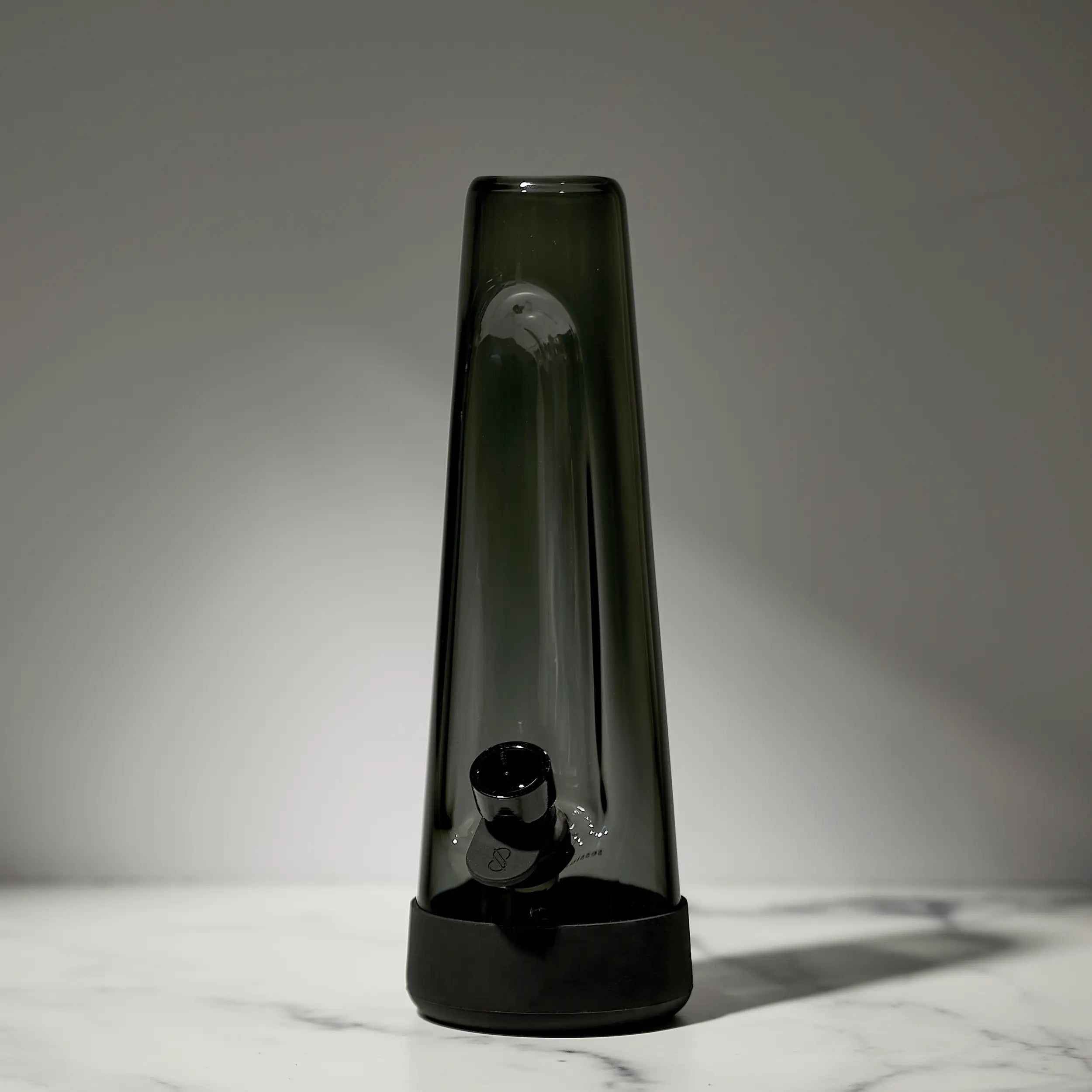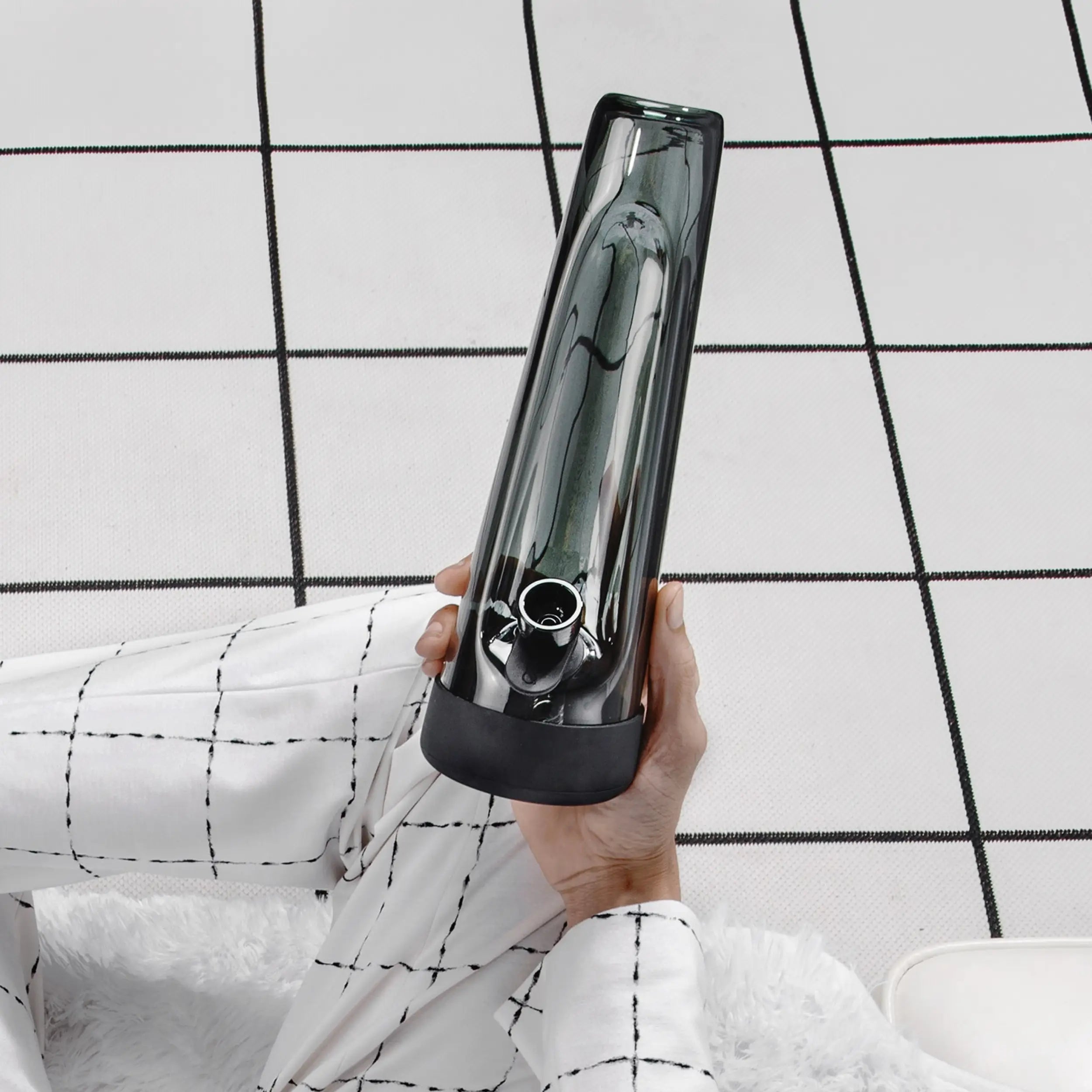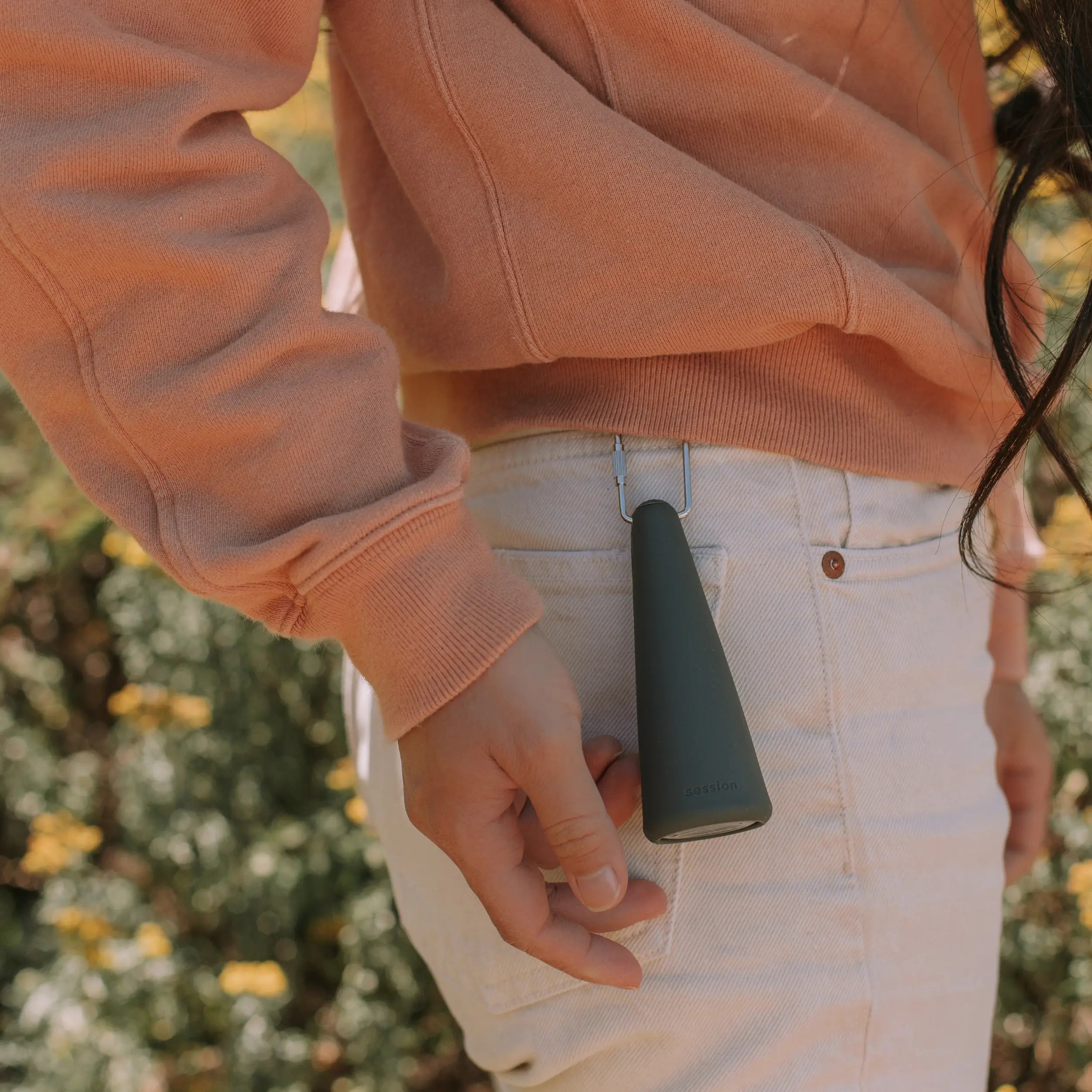As we sat on the couch passing a Session Bong, we couldn't help but wonder how this tradition began and who invented the bong. We did some digging, and bongs have been part of our stoney past since ancient times.
Here is our "book report" on bong history, including the first bong ever made and when were bongs invented.
Table of Contents
- Let’s Find Out Who Invented The Bong
- Bongs in Africa and Asia: Early Beginnings
- The Origins of the Word "Bong"
- Setting the Stage for Modern Glass Bongs
- Bong Technology: A World of Innovation
- Social Acceptance and Legal Challenges
- The Glass Bong Industry Today
- Online Bong Retailers
- The Cultural Impact of Bongs
- The Future of Bongs: What's Next?
Let’s Find Out Who Invented The Bong
The History of the Bong
When was the first bong made? According to the findings, the worlds first bong was found in 2013 by archaeologist Andrei Belinski and is around 2400 years old.
These ancient bongs were unearthed in southern Russia from grave mounds created by Iranian-Eurasian Scythian tribes dating back to around 400 BC, making them the earliest known bongs in history. These artifacts in a Scythian burial mound contained residue that tested positive for cannabis and opium, revealing that these early people were getting lit millennia ago [1].
Herodotus, an Ancient Greek historian, had already written about the Scythians' rituals involving drugs, but these findings significantly confirmed and expanded our knowledge about their lifestyle and bong history.

However, Scythian bongs did not look like what you'd see in stores today. Instead, these bongs are solid gold and decorated with intricate images of human figures in battle or various animals [2].
Unfortunately, due to time destroying any kind of records during that time, we don’t know the name of the person who invented the bong and if this is the first bong ever.

Bongs in Africa and Asia: Early Beginnings
African Roots
Before discovering the Scythians' bongs, archaeologists believed the earliest bongs came from a cave in Ethiopia. The cave contained 11 bongs from sometime between A.D. 1,100 and A.D. 1,400 [3]. These bongs were more complex and composed of pottery and animal horns. Parts were even built underground to help with filtration and cooling, showcasing early ingenuity in smoking device design (now that's dedication).
The Spread of Bongs Along the Silk Road
The first written records of bongs in Asia come from 13th century East Asia during the Ming Dynasty in China. When the Qing Dynasty rolled around in 1644, bongs became the most popular way to smoke tobacco. There were two ways to make these water pipes at the time. One was made of bamboo and was considered a simple version more popular with rural commoners. Merchants, city folk, and the elite used more elegant bongs made of metal crafted from brass or bronze.
Although water pipes became less popular over time, it is noted that Empress Dowager Cixi strongly preferred bongs over alternatives. She adored them so profoundly that, when she died in 1908, she took three of her favorites to the grave—a legend in our book.
The Origins of the Word "Bong"
Another fascinating fact from this era is the word "bong" itself. The term comes from the Thai word "baung" which means cylindrical wooden bamboo tube, and is believed to have entered American culture when Vietnam War veterans brought it back home.
There are two main theories surrounding the adoption of the word "bong" in English:
- The word was brought to America by soldiers stationed in Thailand during the Vietnam War, who encountered the traditional bamboo water pipes.
- The name is derived from the sound the device makes when taking a big rip, an amusing theory rooted in stoner lore.
Setting the Stage for Modern Glass Bongs
For several centuries, bongs made their way through the world via the Silk Road, a collection of trade routes between East Asia and Europe. Once the use of bongs spread to Europe, they inevitably made their way to the Americas. As a result, their prevalence grew among European colonizers in America who grew tobacco, a wildly successful cash crop.
Then in the 1800s, the development of better glassworking methods provided people with improved bong-making material. Thus, the stage was finally set for creating the modern bong.
Though bongs had been around for thousands of years already, their popularity truly soared in the 1960s, coinciding with the hippie movement and the growing popularity of cannabis. An American lampworker and glass artist, Bob Snodgrass, known as the godfather of the modern glass bong, turned his attention to glass-blowing bongs while following the Grateful Dead tour.
He designed and created an astounding amount of bongs during this time. Snodgrass used borosilicate glass, like we do, for his designs due to its ability to withstand high heat. He even developed a glassworking method called fuming, which uses gold and silver to add unusual colors to the glass.
This method helped him create the signature psychedelic look that dominated modern bongs for decades.
So if you were wondering who created the bong as we know it today, it would ultimately be him.
Recommended Reading: How the Session Bong Changed the Game!

Bong Technology: A World of Innovation
There is no denying that glass bongs have come a long way since their ancient days. Today, bongs have many features and designs, from percolation systems and ice catchers to electric or laser bongs. The creativity in the bong industry has led to a wide variety of styles, allowing smokers to find the perfect piece that fits their needs.
Social Acceptance and Legal Challenges
The Crisis of 2003
In 2003, the US government spent $12M to fund the "Federal Drug Paraphernalia Statute" to crack down on the sale of bongs and other smoking devices considered drug paraphernalia. This campaign led to the shutdown of headshops and online stores, with many selling bongs under alternative names like water pipes or tobacco pipes.
The Impact on the Bong Industry
The bong industry took a significant hit during this time, with famous figures like Tommy Chong of Cheech & Chong being arrested and jailed for selling marijuana-smoking paraphernalia. However, the federal government and various states have since relaxed their laws, allowing the legal sale of bongs and other smoking devices.
The Glass Bong Industry Today
The global smoking pipe market is valued at around $2.0 billion and is expected to grow to $3.1 billion by 2031. The popularity of glass bongs has played a significant role in this growth, with many collectors seeking unique, high-quality pieces to add to their collections.
Online Bong Retailers
As the demand for bongs continues to increase, retailers have set up shop online for shoppers seeking affordable prices and a wider selection of related cannabis smoking products such as Pipes, One-Hitters, Ashtrays, and Stash Jars.
The Cultural Impact of Bongs
Bongs have become more than just a smoking device; they are a symbol of cannabis culture and a representation of personal style. From the ancient Scythians to modern-day smokers, the bong has played a pivotal role in the history of cannabis consumption. Its continued evolution and popularity are a testament to the cannabis community, its enduring appeal, and the creativity of those who craft these beloved water pipes.
The Future of Bongs: What's Next?
As the bong industry grows and innovates, we expect even more exciting developments, from new materials to advanced percolation systems, electronic bongs, and new designs like glow-in-the-dark bongs. The possibilities are endless!
In conclusion, the question of who invented the bong takes us on a journey through history, across continents, and into various cultures. From ancient Scythians smoking from gold bongs to the modern glass pieces we have, the bong has evolved into a symbol of cannabis culture and an essential part of many smokers' collections. As the industry continues to grow and innovate, we can be sure that the bong will remain a beloved smoking device for generations to come.
Sources:
[1] Gold Artifacts Tell Tale of Drug-Fueled Rituals and "Bastard Wars"
[2] These 2,400-year-old solid-gold bongs were used by Scythians for cannabis















![[in] session blog — Inspiring interviews, articles about cannabis & design](http://sessiongoods.com/cdn/shop/files/session-goods-homepage-insession-blog-mobile_63644ba1-0223-434b-b77e-5f4a30d7375f.webp?v=1692127377&width=600)